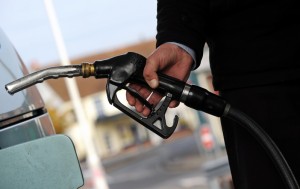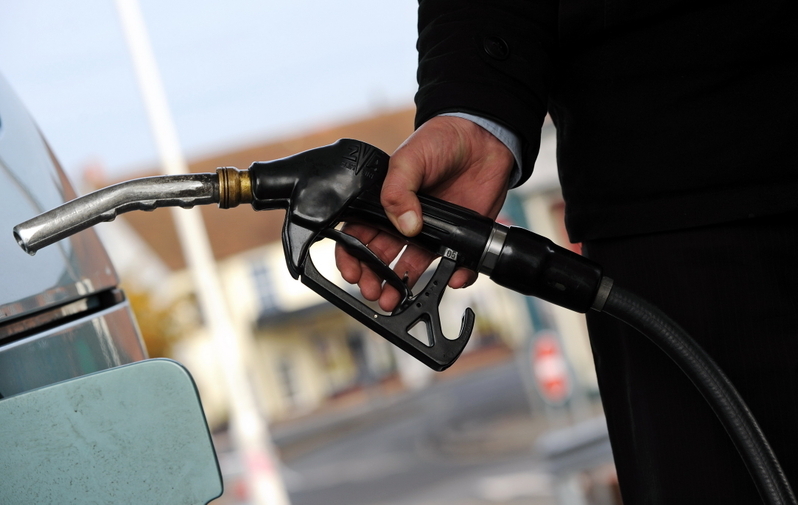
(AFP Photo)
The government is kick-starting plans to complete the second and third phases of a petroleum products distribution system as part of efforts to restructure energy subsidies. The goal is to monitor and control distribution for these products, according to cabinet spokesman Hossam El-Qawesh.
El-Qawesh said: “The second and third phases are aimed at adjusting and monitoring petrol, diesel and fuel oil distribution by ensuring that petroleum products are distributed within the country’s borders and not smuggled abroad through an integrated national database of actual consumption of petroleum products.”
He added that an economic group meeting, held on Sunday under the leadership of Prime Minister Ibrahim Mehleb, revealed the project’s second phase is the registration and delivery of the smart cards system. Approximately 2.5 million citizens will receive the cards through the system’s website, with private vehicle drivers also qualified to use the system. It has also been emphasised that all gas stations nationwide are ready to use the new system as well.
He said that petrol stations nationwide have been equipped with over 12,000 machines, and 8,000 petrol station attendants have been trained.
He went on to say: “The third phase of the system involves including other parties that are not registered, such as boats, bakeries, farmland, fish farms, tractors, and tuk-tuks.”
El-Qawesh added that a website will be established to record vehicle data. A control room will be constructed and linked to the Egyptian General Petroleum Corporation (EGPC) and petroleum products depots.
The government began the first phase of adjustment for the petroleum product distribution system in July 2013, to monitor fuel distribution from depots to fuel stations. The monitoring is to ensure the product is not smuggled. During this phase, loading, unloading, and distribution operations were mechanised.
Mehleb, in a cabinet statement issued on Sunday, emphasised the need for speedy completion of procedures regulating the petroleum product distribution system gradually across the governorates. He also emphasised the need to monitor the transport and proper distribution of products, and create a database developing rationing policies that ensure efficient distribution at the level of the nation.
According to the statement, the new system will not include determining quantities of petroleum products for motorists.
The cabinet economic group, headed by Mehleb, agreed on 18 new petroleum projects during its Sunday meeting, also moving to modify agreements in the fields of research and exploration.
It is estimated that the minimum amount of investments required for these agreements is approximately $1.138bn. This comes in addition to approximately $185m in grants to prepare for the completion of the executive and legislative actions associated with the agreements.



